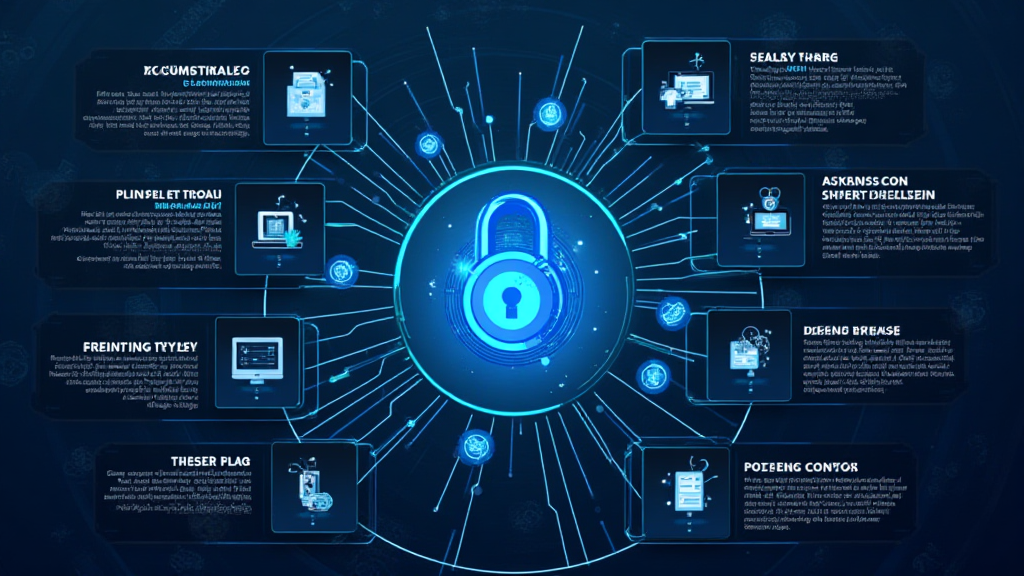2025 Blockchain Security Standards: A Comprehensive Guide for Digital Asset Protection
With over $4.1 billion lost to DeFi hacks in 2024, securing blockchain assets has never been more critical. As we look towards 2025, understanding the essential blockchain security standards is vital for anyone involved in the cryptocurrency space, particularly in emerging markets like Vietnam.
In this article, we will explore important practices regarding feedback submission processes such as HIBT Vietnam feedback submission, identify potential vulnerabilities, and offer solutions tailored for users in Vietnam.
1. Understanding Blockchain Security Standards
The importance of blockchain security is underscored by the rise in hacks and scams. Like a bank vault for digital assets, robust security standards act as a protective barrier. Key components include:

- Consensus Mechanisms: Ensure data integrity through established validation processes.
- Cryptography: Safeguards information through advanced encryption techniques.
- Smart Contracts: Demand auditing and verification to prevent exploits.
According to recent reports from Chainalysis, Vietnam’s user growth rate in the cryptocurrency sector has surged by over 200% in 2023, indicating a crucial need to implement robust security measures.
2. Vulnerabilities in Consensus Mechanisms
Many blockchain networks rely on consensus mechanisms that can be exploited. For instance:
- Proof of Work: Susceptible to 51% attacks where malicious nodes dominate the network.
- Proof of Stake: Risks include nothing-at-stake problems, where validators may engage in conflicting activities.
A stable network requires consistently updating and improving these mechanisms. It’s important to stay informed and adapt as threats evolve.
3. The Role of HIBT in Vietnam’s Blockchain Landscape
HIBT (Hanoi Institute of Blockchain Technology) plays a crucial role in enhancing user feedback processes. HIBT Vietnam feedback submission acts as a bridge between developers and users, ensuring that real concerns are addressed. Here’s how:
- Transparency: Users can provide insights into their experiences.
- Accountability: Developers can respond directly, creating a feedback loop.
Utilizing HIBT’s feedback mechanisms not only improves trust but also fortifies security practices.
4. Smart Contract Auditing: What You Need to Know
Smart contracts have revolutionized digital transactions, yet they are often prone to vulnerabilities. How to audit smart contracts effectively involves:
- Employing third-party auditors with expertise in blockchain.
- Conducting formal verification processes to confirm expected behavior.
Statistically, over 75% of hacked projects were due to poorly audited smart contracts. Therefore, prioritizing audits can reduce risk significantly.
5. Integrating Secure Practices into Daily Use
As individuals participate in the cryptocurrency market, adopting secure practices is essential. Recommendations include:
- Utilize hardware wallets, such as the Ledger Nano X, which reduce hacks by 70%.
- Regularly update your software and wallets.
- Be cautious with unknown links and unverified applications.
In Vietnam, where the crypto landscape is still evolving, it’s critical for users to stay informed and vigilant.
Conclusion
As we approach 2025, the importance of securing blockchain assets will only increase. With initiatives like HIBT Vietnam feedback submission, users have a chance to shape their security landscapes actively. It’s essential to be aware of vulnerabilities, employ auditing practices, and integrate secure use into everyday transactions. Keeping ahead of potential threats ensures a safer digital asset environment for everyone. For those keen on learning more about securing their digital assets, visit bobscoinsonline.



